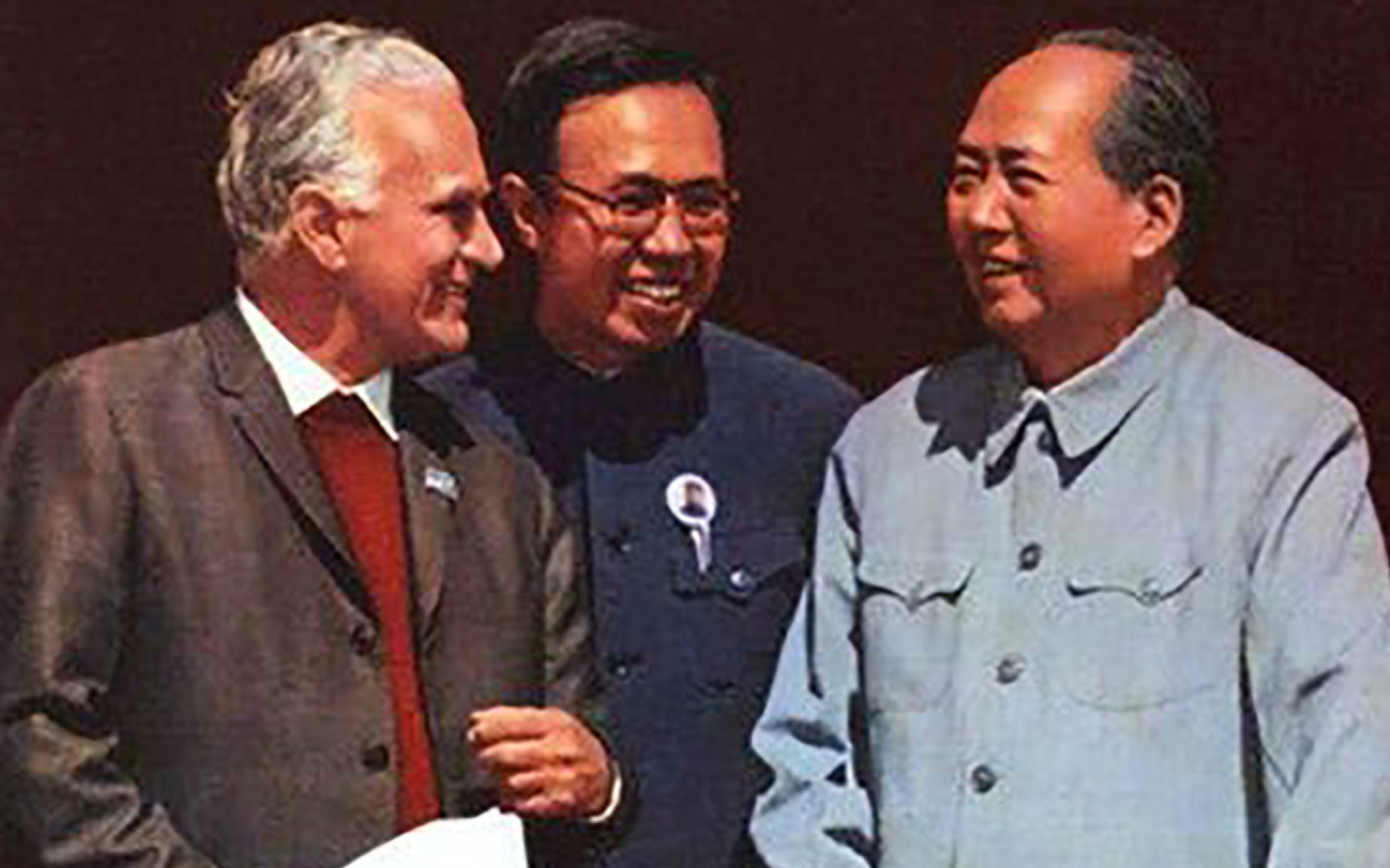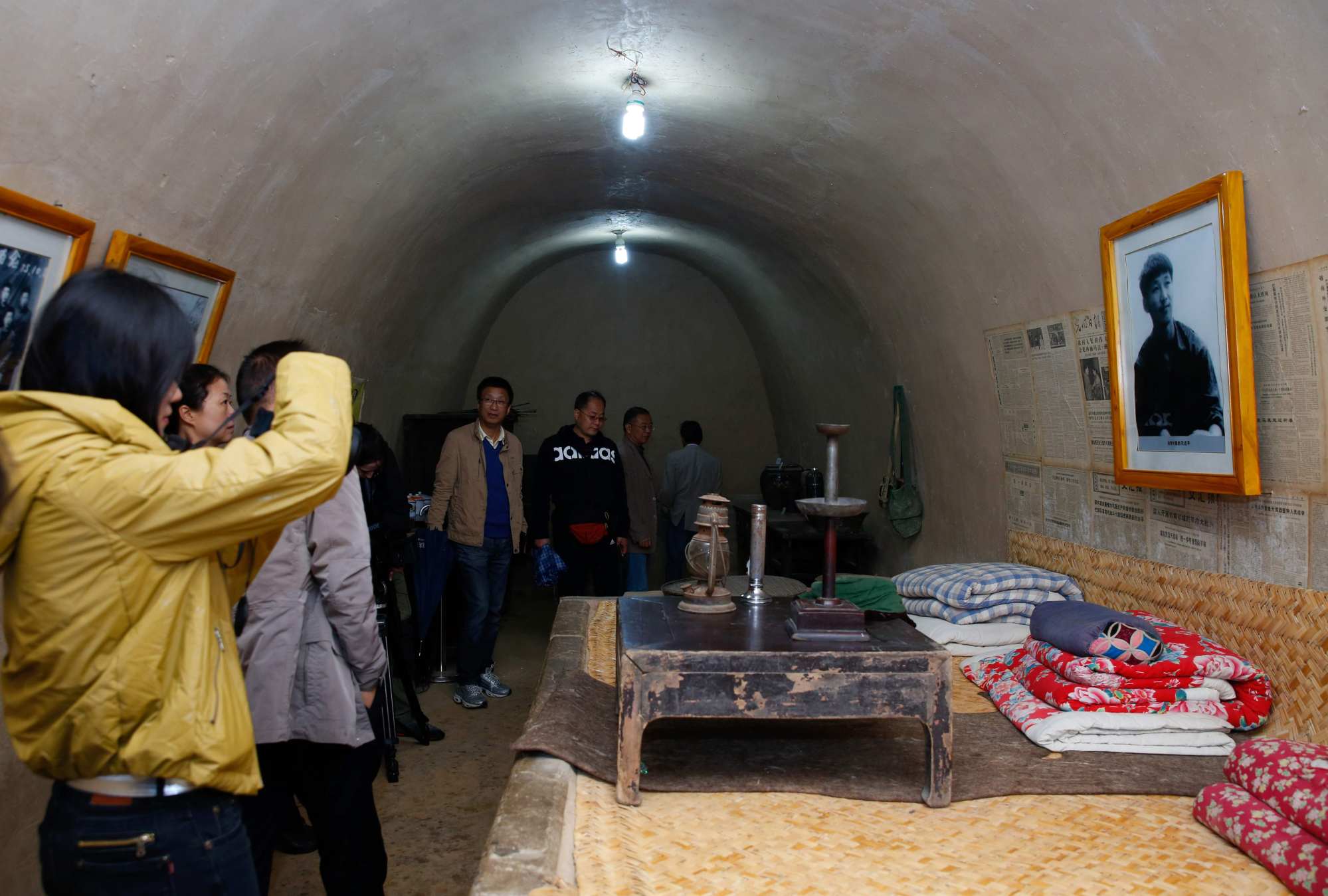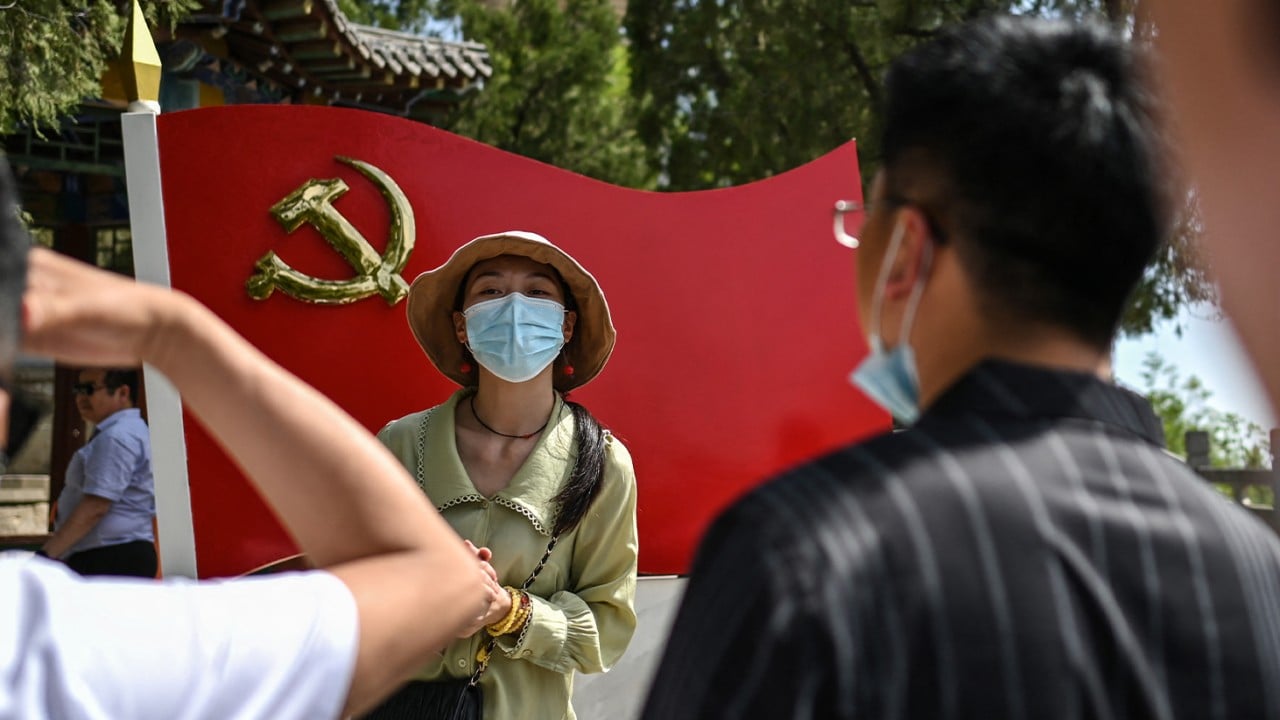
From Mao and Xi to the Snows, does their legacy in Yan’an continue to define China’s future?
- As the Chinese Communist Party gears up for its centenary on July 1, the city of Yan’an – where two of the country’s leaders lived – has become a sacred site
- It is also where Americans Edgar and Helen Foster Snow interviewed Mao and brought his story to the West, a prospect that would be much more difficult today
The party may pride itself on being atheist, but it has no qualms in describing Yan’an as a revolutionary holy land. Party members and ordinary people travel there like pilgrims, many dressed in the blue costumes of the Red Army.
It was there that Mao Zedong and other party leaders set up the main revolutionary base in 1935 following the Long March, and where they spent 13 years forging the ragtag Red Army into the powerful People’s Liberation Army, which they led to take control of the country and found the People’s Republic in 1949.
If China’s leaders want to engage the international media, learn from Mao, Deng and Jiang
This month, I joined a group of international journalists on a government-organised tour of the key holy sites in the city, where I also attended a forum to discuss the legacy of the American journalist Edgar Snow and his wife Helen Foster Snow. In 1936, Snow became the first reporter from the United States to enter red territory, where he spent many nights talking with Mao and other party leaders – conversations that led to the publication of his famous book Red Star Over China, which gave the outside world an understanding of the party and Mao for the first time.

Yan’an, today home to more than 2 million people, has long been associated with its distinctive cave homes and yellow Loess Plateau, conjuring up an image of barren land. But driving through the city, one cannot help but notice the dense greenery on the rolling hills surrounding the narrow strip of the downtown area. While local officials used every opportunity to praise Xi’s leadership, they also acknowledged that the city began restoring cultivated land as early as 1998 by paying the farmers to leave their cave houses on the hills under a scheme known as “grain for green”. These days, the city has acquired a modern look, dotted with high-rise residential and office buildings, while a few cave houses have been preserved to cater to tourists.
Mao’s cave dwellings are a must-see highlight in the city, which is home to 445 sites of the party’s early revolutionary activities and 30 similarly themed museums. During his 13 years in Yan’an, Mao lived in a number of different cave homes, but the Zaoyuan and Yangjialing sites are the most impressive. At Yangjialing, his dwelling occupies two caves and features a wooden writing desk, two deck chairs, a bed and a family portrait on one wall, showing him with his fourth wife Jiang Qing and one of their children.
Hainan, China’s Hawaii, faces an uphill struggle to catch Hong Kong, Singapore and Dubai
In the courtyard, a stone desk is marked as the spot where Mao was interviewed by American journalist Anna Louise Strong in 1946, during which he uttered one of his most famous sayings: “All reactionaries are paper tigers.”
During visits to these sites, the tour guides focused on how Mao and other leaders lived a simple life and worked tirelessly for the party and the people, leaving out any mention of the party’s past mistakes and brutal politics. The latter includes one instance when Liu Zhidan and the current president’s father, Xi Zhongxun – young revolutionaries who first set up a base in Yan’an before Mao arrived – were once purged and almost buried alive in one of the bloody power struggles.
A trip to Yan’an is not complete without making the pilgrimage to the mountainous village of Liangjiahe, an hour and a half away by car. That is where Xi arrived in 1969 at the age of 15. Today, the village’s surrounding hills are covered in lush greenery, and electric vehicles ferry visitors on paved roads into the heart of the village, where the cave houses Xi lived in have been well maintained and are open to visitors.
The exhibition rooms paint a grim picture of his seven years there – no electricity or tap water, and not enough food and meat on the table. To a large extent, Xi’s life there was barely different from that of his father in Yan’an more than 30 years earlier, even though it was 20 years after the People’s Republic was founded. The village did not have electricity until 1988 when Xi, then a senior official in Xiamen, pulled strings to make it happen. It was not until two decades later that the villagers had running water.
China should allow a Covid-19 leak theory probe at Wuhan lab – if US does the same at Fort Detrick
During much of Xi’s stay, he shared a cave with five or six others, sleeping close to each other on the kang – a flea-infested platform made of brick and clay. Village officials and tour guides entertain visitors with tales of how Xi, despite his young age, showed leadership by forging close bonds with villagers, teaching them how to read and dig a well for drinking water.
On display in one cave where he lived is a handwritten note detailing his 1974 approval as a party member, the same year he was appointed as village party secretary at the age of 20. Xi had reportedly submitted more than 10 applications for party membership, but had previously been rejected, presumably because his father was purged again during Mao’s Cultural Revolution.

In recounting his experiences in Liangjiahe, Xi said he was perplexed when he came to the “yellow earth” at the age of 15, but upon leaving at 22 he had a firm goal in his life. In 2015, Xi made a triumphant return to the village as China’s head of state, saying the village life contained profound learning worthy of a university education.
Indeed, the fact that both Mao and Xi lived in Yan’an has strengthened the party’s narrative that Xi is another great leader following Mao’s footsteps, both with close ties to the common people – while Mao founded the “new China”, Xi is leading the country to become a world power in a new era.
The message should go down well with the Chinese people, but the authorities are also keen to have it received and understood in the outside world – hence the forum on the legacy of the Snows. It was attended by family members of the couple and other “foreign friends” who visited and worked in Yan’an and other revolutionary bases in the 1930s and 1940s, including journalists and doctors from the US, New Zealand, and other countries – as well as government researchers and foreigners working for government-owned English-language publications including China Daily and Shanghai Daily.
Obviously, China sees great propaganda value in commemorating the Snows’ legacy, as it celebrates the party’s centenary at a time when its ties with the US and other Western countries have nosedived. But the main theme of the forum – that China wants to encourage more foreign journalists to be like Edgar Snow – seems to be an impossible mission.
One moderator hit the nail on the head. Citing a Pew Research Centre report from October last year that showed unfavourable views of China soaring to historic heights in many developed countries, he suggested that in today’s climate, the Snows would not have been published in the West.
Wang Xiangwei is a former editor-in-chief of the South China Morning Post. He is now based in Beijing as editorial adviser to the paper


